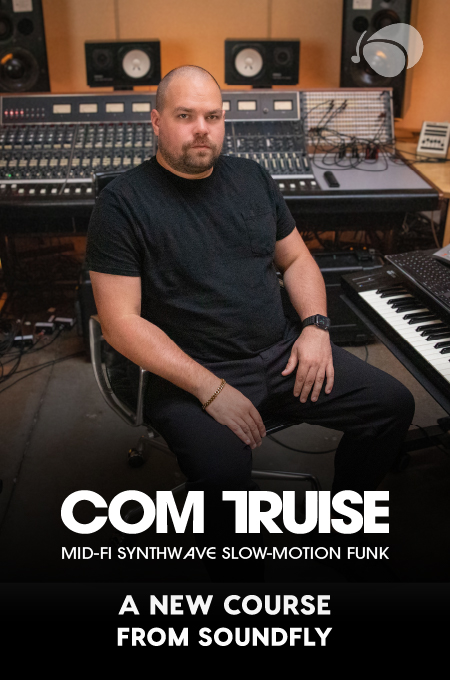
Writing a hit song takes much more than just good luck and a sense of melody. To a large degree, songs become hits because they simply get stuck in our heads. Incorporating truly memorable lyrical and melodic hooks is absolutely vital.
But what happens when the hook gets buried or is too complicated for listeners to recall when the song ends? Imagine a stand-up comic telling a great joke. The setup is brilliant, the story is engaging, and the audience is interested. If the delivery of the punchline is too wordy, the crowd is distracted by a strange bodily gesture, or the comedian mumbles, the audience will feel slightly confused and disappointed. The comedian’s hard work crafting the joke would mean nothing.
Always strive to write great verses, bridges, and musical content in your songs, but the hook should be your focus if you want your song to be memorable.
As I’ve explored in the past (hint, hint: The Rolling Stones’ “Sympathy for the Devil”), you can still break all the rules and come away with a hit song. I don’t mean to rob you of your creative energy, but the goals here are to get you thinking about formulas for effective songwriting, make you comfortable using them, and show you how to avoid the typical pitfalls.
Repeat the Hook
This should be obvious, but the more often something is repeated, the more likely we are to remember it. When trying to remember a password or a grocery list, we repeat it to ourselves (at least internally). So why include your hook only once per chorus, especially if it runs more than four or six lines?
Place your hook in the beginning as well as in the end of your song for maximum memory recall. This can be useful if the hook is a little weak or not all that different. Hearing it more strengthens its power and separates it from the rest of the lyrical content in your song, and people tend to remember what they hear first and last.
Use it too much, however, and people will get sick of it. As you hone your skills as a writer, you’ll soon feel what the “right” amount is for a song. You’ll know if it’s too much.
+ Read more on Flypaper: “4 Tips for Songwriters Looking for Artists to Record Their Songs”
Change Up the Rhythm
Many songwriters vary the rhythm between the verses and the choruses. This is a simple and very effective way to re-engage the listener’s attention and keep the song moving forward.
Many times, though, even the chorus’ rhythm becomes stale and desperately needs a breath of fresh air. Consider breaking up the words of your hook in an interesting way; inserting quick changes to the tempo, rhythm, syncopation; or adding an effect like stuttering.
Think about David Bowie’s “Changes” (“Turn and face the strange/ch-ch-changes”). The chorus just wouldn’t be the same if he didn’t repeat that first syllable of the song’s title.
Another easy trick is pausing just before the hook (or perhaps before a word you really want to emphasize). Silence can make listeners lean forward and pay attention.
When writing a hit song, it’s all about grabbing that attention and keeping it for three or four minutes. Don’t let them tune you out!
Don’t Overshadow the Hook
One time, I critiqued a song that had multiple repeated lines in the chorus, all of which were different from the song’s title. I couldn’t have told you with certainty what the hook was if you offered me a million dollars.
This is a problem on multiple levels. You want people to remember the one underlying idea of the song, and creating chaos for listeners is never a good idea. They need to know the name of your song to request it, find it online, or tell their friends about it.
Likewise, if a radio program manager or DJ likes your song enough, they’ve got to recognize the hook to know when to play, promote, and fit it into their cycles. Don’t create unnecessary barriers for your song.
If you’re struggling, pick your strongest line and repeat that. Save those other lines for a verse or bridge.
Choose Your Words Carefully
As a general rule, don’t use the same words from the hook in the rest of the song. For example, let’s say you’ve got a song with “home” in the hook. Don’t use that word elsewhere. Instead, use synonyms or, even better, related ideas that conjure up vivid images. Mom’s apple pie, a fireplace, your old bedroom, etc.
Find lyrical examples that have personal meaning to you, and you’ll craft lyrics that resonate with a listening audience. Then, when that hook hits, it’ll have more potency.
If a listener has already heard words from the hook before you hit them with the payoff line, they’re already bored. You’re not giving them anything new, and they’ll tune out.

Make Your Hook the High Point
Throughout music’s timeless existence, there’s always been a “money note” — that one note that draws the listener’s full attention because it’s either a higher pitch than the rest or held longer. If you combine this technique with a killer hook, you have the makings of a hit song.
It’s important, however, that you not force this tool on a song. It can sound unnatural. Instead, speak the lyrics. Words have a certain meter and pitch. You may find the word you expected to emphasize as the high note doesn’t need to shine as much as another one.
—
There are dozens of ways to make your hook, and consequently, your entire song, stand out from the crowd. Not all of them can be contained in a short article. Like many other things, songwriting is a craft. The more hours you spend on it, the better you’ll get at internalizing these skills and formulas.
As you hone your craft, you may even discover unique ways of your own to improve the quality of your songs, and you’ll no doubt learn more about yourself in the process.




